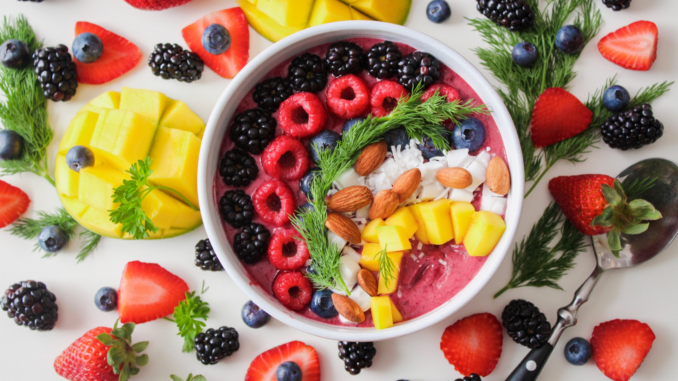
When food, nutrition or diets are linked to ADHD, often the first thought is about food colours and the brilliant blue sweets and bright orange soft drinks of the 80s and 90s. These concerns led to reduced use of many of these additives, especially colours in sweets and drinks. So, that might explain the demise of the blue smartie! However, although some children might benefit from exclusion diets including additives for ADHD, the link to diet and adult ADHD is more complex.
ADHD in adults likely impacts how the person living with ADHD is able to interact with their food environment (how they, choose, buy, and eat food) and then how what they eat ultimately impacts their physical and mental health.
ADHD has been associated with an unhealthy ‘Western’ diet and traits such as inattentiveness and impulsiveness have been linked to sugar consumption and poor dietary choices in adult ADHD. ADHD is also associated with an increased risk of binge eating disorder and obesity, reinforcing how important this subject is. Some medications for ADHD, especially amphetamine stimulants, cause appetite suppression also. With this in mind, it may be useful to look at how core ADHD traits might impact how ADHD adults eat, and to present some ideas to help manage dietary habits in ADHD adults.
ADHD and Food Preparation

Lack of executive function skills and inability to choose what we focus on could lead to reduced interest in preparing foods, or overlooking details. Both of these issues can be important when preparing interesting, tasty meals. This is a challenge as we are being made increasingly aware that many of the quick and easy options are also ultra-processed – often the less healthy options. So, one tip that might help with times where reduced focus is an issue, is to set reminders for mealtimes and have a number of quick meal and snack ideas made up of 5 or fewer ingredients. This might be from a quick and easy recipe website or student cookbook; find things you like and are not too complicated.
Hyperfocus, or long-lasting, highly focussed attention, is also seen in adult ADHD. This can lead to missing meals, which may seem like a good thing if you want to lose weight, but it can risk less control over food choices later – which can lead to less healthy choices and potentially weight gain overall. Again, this could benefit from setting reminders for breaks. To assist this, have healthy food at hand, such as a visible fruit bowl or a sandwich made ready to eat later. These approaches might also help with issues of time management and disorganisation, although this might be a challenge if disorganisation is a key issue, so be kind with yourself and accept you might not always get this right. The key is to keep trying, and not to mentally beat yourself up if you don’t always get it right.
Impulsiveness, a core trait of ADHD, can be associated with poor food choices. This is not unique to people living with ADHD, and perhaps the simplest tip to work on this is when you sense an impulse to eat – try and grab a drink instead – ideally water or something without a lot of sugar in it such as tea or coffee. This might be another tip that might benefit from reminders on phones along with not expecting yourself to get it right every time.
So, it seems many of the traits people with ADHD face conspire to stop you from eating well, so the answer might be to try and set gentle nudges to remind you how to be kind to yourself and give yourself time to eat. Support from family members can be important, and patience is needed, both by the person with ADHD and those living with them, to set up an environment that supports a healthier diet and regular eating. This is no different than general healthy eating, based on plenty of vegetables, fruit, whole grains, nuts, seeds, beans, peas and lentils etc. With some meat and fish if you like (or alternatives) and dairy (again or alternatives) with less food with added fat, sugar and salt. With the extra fibre, something that most people in the UK miss out on will help not only your health but also the health of the bugs in your colon which may have a role in turn in boosting mood – another problem associated with living with ADHD being a low mood.
Some basic tips
- Your brain might not give you the usual pushes to eat – so try and outsource it using reminders on a phone or similar.
- Try to have healthy options to hand – so when impulses kick in the easy option can be a healthy one.
- Be kind to yourself, you will not get it right all the time, small changes help and if you slip, its not broken or over, try and give it another go.
Author: Duane Mellor RD, RNutr, PhD.
Editor: James Brown PhD.

Leave a Reply
You must be logged in to post a comment.